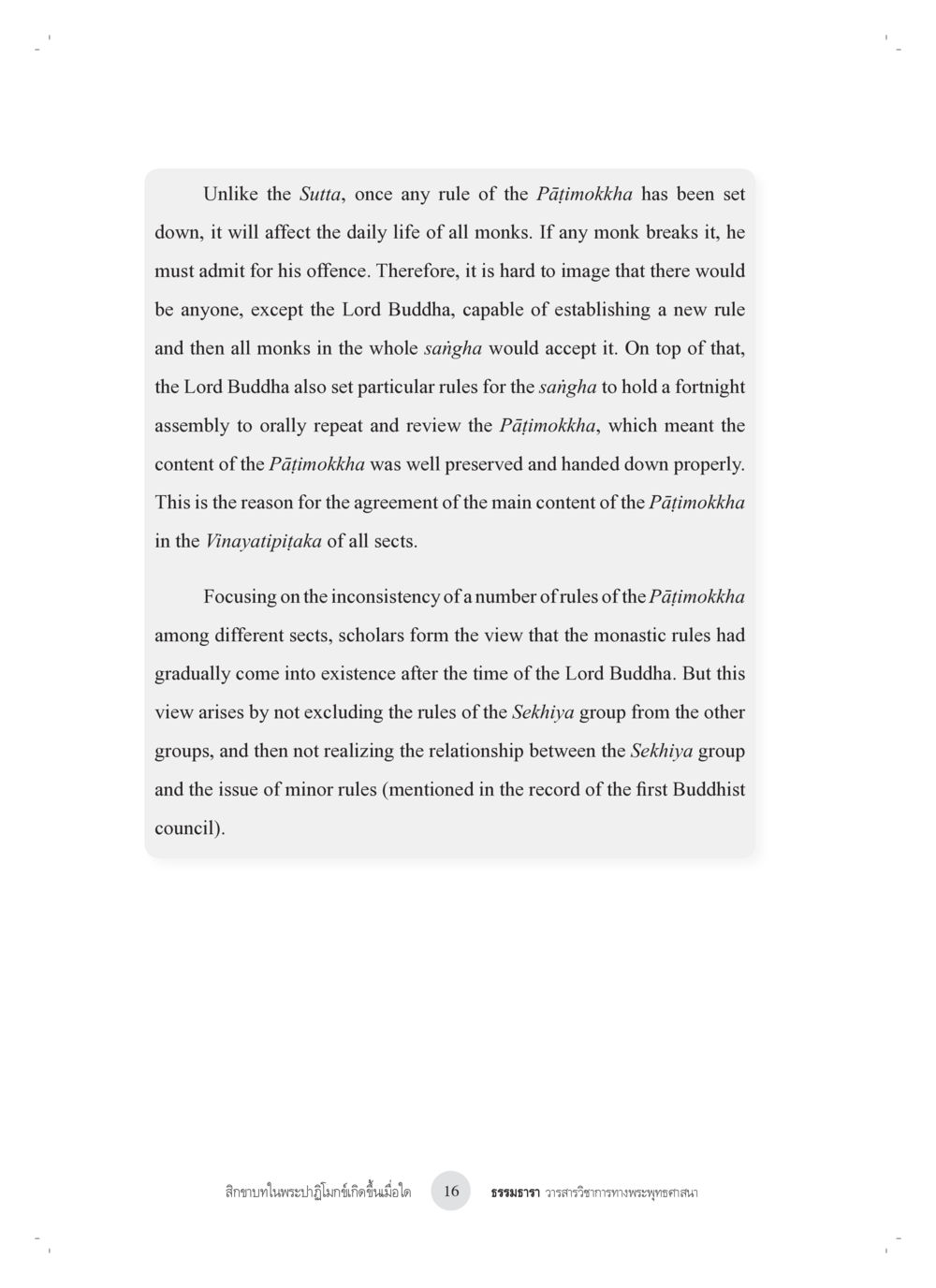The Impact of Pāṭimokkha Rules on Monastic Life : หน้า 4/42
สิกขาบทในพระปาฏิโมกข์เกิดขึ้นเมื่อใด : หน้า 4/42 Explores how Pāṭimokkha rules influence monk's daily lives and their preservation through assemblies.
0 ครั้ง

สรุปเนื้อหา
The Pāṭimokkha rules, once established, significantly influence the daily lives of monks within the sangha. Any monk who breaks these rules must confess to the offense, which underscores the importance of these guidelines. Only the Lord Buddha had the unique authority to institute new rules, ensuring widespread acceptance by all monks. To maintain the integrity of the Pāṭimokkha, the Buddha mandated that monks gather bi-weekly to orally repeat and review these rules, allowing for accurate preservation across generations. Consequently, there is a consensus on the core principles of the Pāṭimokkha within the Vinayapitaka across various Buddhist sects. Some scholars, however, suggest that variations in the monastic regulations reflect a gradual evolution post-Buddha’s era, failing to consider the Sekhiya group in this analysis, which impacts the understanding of minor rules as documented in early Buddhist councils.
หัวข้อประเด็น
-Pāṭimokkha significance
-monastic rules history
-role of Buddha in rule-setting
-preservation of monastic conduct
-variations among sects
-Sekhiya group influence










































